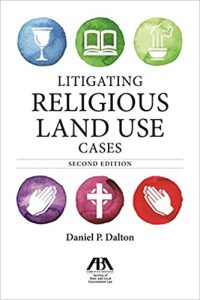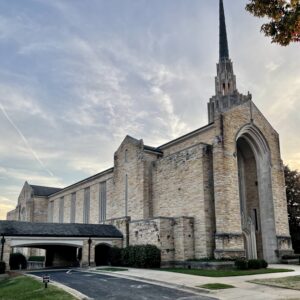
RLUIPA at 24: A Landmark for Religious Freedom
Twenty-four years ago, the Religious Land Use and Institutionalized Persons Act (RLUIPA) was signed into law, marking a significant milestone in protecting religious liberty in


Twenty-four years ago, the Religious Land Use and Institutionalized Persons Act (RLUIPA) was signed into law, marking a significant milestone in protecting religious liberty in

Good afternoon. Thank you for inviting me to speak with you today. I have been asked to provide my remarks outlining the laws Congress passed

The Religious Land Use and Institutionalized Persons Act (RLUIPA) provides vital protections for religious institutions facing discriminatory or unduly burdensome land use regulations. But what happens if a religious institution believes its RLUIPA rights have been violated? What kind of relief can they seek? In this blog post, we’ll explore the various remedies available to those who successfully bring a RLUIPA land use claim.

This provision of RLUIPA, often referred to as the “non-discrimination provision,” serves as a shield against unfair treatment of religious organizations in the context of land use. It prohibits governments at all levels—federal, state, and local—from enacting or enforcing regulations that single out religious assemblies or institutions based on their faith or denominatio
This Tuesday, September 22, 2020, will be the 20th anniversary of President Bill Clinton signing into law the Religious Land Use and Institutionalized Persons Act, also
In the past several months, we have found that the strategic use of the Religious Land Use and institutionalized Persons Act (also known as RLUIPA)
On this day 19 years ago, President Bill Clinton signed into law the Religious Land Use and Institutionalized Persons Act, also known as RLUIPA. The
Although RLUIPA is mainly concerned with religious discrimination, racial animus towards a religious organization falls within the ambit of RLUIPA’s very broad protection. On February 7,
As explained more thoroughly in “Litigating Religious Land Use Cases,” RLUIPA contains five claims under its broad statutory umbrella. And while each claim has distinct
Irish Oaks is a non-denominational Christian church founded by a group of friends in rural Lapeer County. These friends were interested in developing their relationship
Problem Solvers for Religious and Nonprofit Organizations, Property Owners, and Businesses.
Do you have a question? We would love to hear from you. Click the button below and we’ll get in touch with you shortly.
Please note that this website may be considered attorney advertising in some states. Prior results described on this site do not guarantee similar outcomes in future cases or transactions.